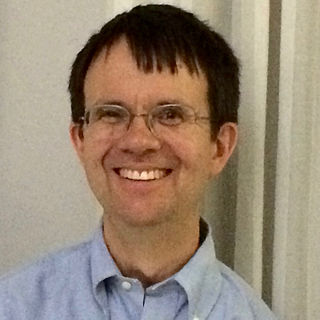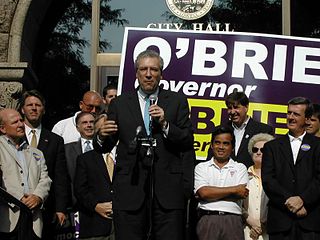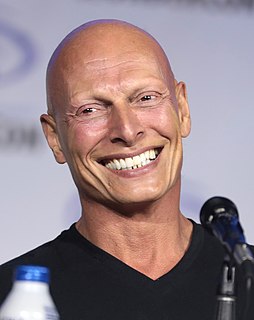A Quote by Eric Allin Cornell
My fellow students there were very smart, but the really novel thing was that they actually seemed to put a lot of effort into their school work. By the end of my first semester there, I began to get into that habit as well.
Related Quotes
And once I was in college, about - maybe the end of my first semester of my sophomore year, I realized that college just was not my jam and that I felt like I was learning more when is actually on set. And I think a lot of that had to do with - I was working while I was in college. I was on "227," so I didn't get a chance to really be immersed in the culture of my school.
I do think that a school day that matches the work day makes a lot of difference for working families, but the big driver of this effort is education. Period. We have a lot of students not gaining the skills they need, and it is pretty clear that school does not offer enough time to get that job done.
I wasn't always smart, I was actually very stupid in school [T]here was a boy who was very attractive who was even stupider than I was. And in order to ingratiate myself with this boy who was very beautiful, I began to do his homework for him – and that's how I became smart, I had to do all this work to just keep ahead of him a little bit, in order to help him. In a sense, all the rest of my life I've been trying to do intellectual things that would attract beautiful boys.
I teach a 14-week semester, and one of the things I do when I have to teach literature is, for the first half hour of the class, I have the students write the beginning of a new story every week. At the end of the semester, even if they have learned nothing about literature, at least they'll have 14 beginnings that they can take with them.
The first thing I did after getting a Master's degree - and the Air Force was very kind; they let me stay on at school to get a Master's - I went to Denver for the Armed Forces Air Intelligence School, six months. Fundamentally, we had a major effort on in Southeast Asia, and this was training folks to support that effort.
First I went to a Jewish school, when I was very little. But when I was 12, they put me in a school with a lot of traditions, and they were educated people and they were talking about Greece and the Parthenon and I don't know what. All the kids, all the girls they had already seen that and knew that from their family, and I would say, "What are you talking about, what's that?" It's not my world. My grandparents were very well-educated people, but in the Jewish tradition. They knew everything about the Bible.
Justin [Di Cioccio] was [at Laguardia School of Arts]. He later took over at Manhattan. But I knew Justin through the McDonald's band, which at the time I was finishing high school and starting college, I got involved with. I was not that heavily involved with the school at MSM my first year there. I took a semester off to start my 2nd year. Took classes I felt like taking during my third semester, but by the start of my third year, September of '86, they began the undergraduate jazz program and I joined that program.
Drama school was the first place I learned that looks can affect your career. It was very horrible at the time. I had a lot of very bad experiences at drama school because of that, from the teachers and the students. In the end, I think it was good for me because it hardened me to the realities of the business early on.



































